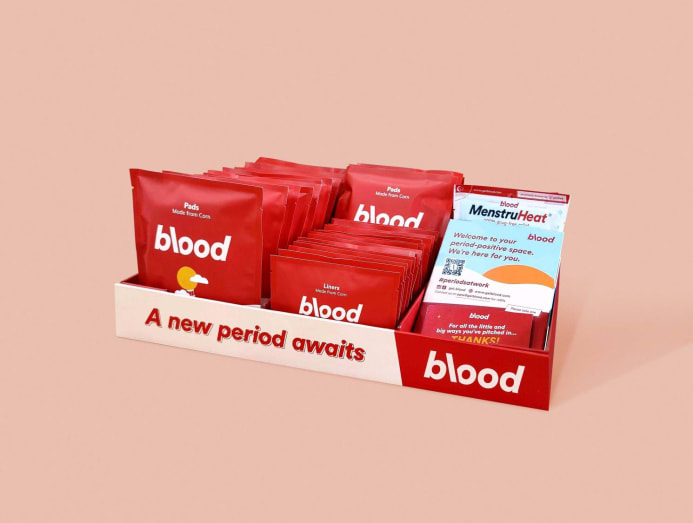Period talk: Why is it so hard to tell my boss and coworkers about my menstrual pain?
Women often find it difficult to open up about their periods at work because it’s considered too personal to talk about in a professional setting. CNA Women unpacks this still-taboo topic and looks at how companies in Singapore can better support their female employees.

Experts share their insights on why working women should not have to approach their menstrual health in a hush-hush manner, and what companies can do to encourage openness about it. (Photo: iStock/Svitlana Hulko)
Have you ever wondered why we treat “that time of the month” as a hush-hush topic in the office? Well, it’s 2022, so perhaps, it’s time to talk about it.
Picture yourself waking up on a work day – you’re jolted by wave after wave of abdominal cramps that make you want to curl up in bed.
It is important to recognise that every woman goes through their period differently.
And then you wonder: Should I text my boss and say that I’m unwell and won’t be coming into work (without taking medical leave)? Or should I head to the doctor to get a medical certificate and then head home to sleep off the discomfort and pain with some peace of mind?
Or, should I brush off the discomfort and trudge into the office without saying anything at all – at the expense of my health and work productivity?
It’s as if being on your period is a bad thing. And women are often all too familiar with the secrecy.

Think whispering along the office corridor to a female co-worker: “Do you have a sanitary pad to spare?”. Or the many times you’ve walked briskly to the office toilet clutching a pouch filled with pads or tampons, hoping no one notices?
Why should women have to be embarrassed about this normal part of their lives? And sometimes, even with other women. Why is the topic of menstruation and period pain still taboo – especially in an office setting?
STILL A TABOO TO TALK ABOUT PERIODS IN THE WORKPLACE
A 2021 UK study which explored 125 female staff experiences on premenstrual symptoms in the workplace, aptly described the topic as an “under-researched health issue, particularly in the context of work”.
According to the findings, disclosing premenstrual symptoms and sickness absence in the workplace was “very low”, primarily because it’s considered a personal or “embarrassing” topic or that it’s perceived inappropriate to be absent for that reason.
The situation is the same in Singapore. A local survey by period care start-up Blood in January, found that 31 per cent of respondents with painful menstruation admitted that they “suffer in silence”, even as 11 per cent of them described their period pain as “debilitating” and “paralysing”.
Moreover, one in two women said they felt compelled to lie to their bosses about the reason they were missing work, in order to avoid ridicule or discrimination, said Blood in its press release.
Some women may experience extreme pain accompanied by nausea (and sometimes heavy bleeding) throughout their entire period such that they are unable to carry on with their daily activities.
The survey was part of the company’s initiative called Period-Positive Workplaces, and involved 1,000 Singapore women aged between 18 and 55. Blood said its aim was to highlight the impact a woman’s monthly cycle had on work productivity, and to encourage companies to better support women.
To do so, Blood offered businesses a complimentary digital playbook containing tips and guidance on how to shape a period-positive workplace. It also gave out “period-welfare kits”.

Said Tan Peck Ying, the co-founder of Blood: “We’ve prepared 100 period welfare kits to distribute to companies that have shown interest (in the initiative), and have reached out to approximately 50 companies so far.”
Out of this group, more than 24 companies, ranging from global MNCs to local startups across fashion, tech, media and financial services have “shown strong interest” and are working with Blood to see how they can implement period-friendly practices in the workplace, Tan added.
WHEN IT GETS UNBEARABLE: CONSIDERING MENSTRUAL LEAVE
While cyclic period pain, or pain that comes with menstrual bleeding, is par for the course, how each woman experiences it and deals with it (and other menstruation discomforts) is different.
“Some women may experience extreme pain accompanied by nausea (and sometimes heavy bleeding) throughout their entire period such that they are unable to carry on with their daily activities,” said Dr Shimona Khoo, a family physician at Raffles Medical.

Take Lee Jia Li, for example. The 25-year-old product manager at a tech firm said her menstrual cramps are so “excruciating” that, twice, she had to be ferried to the hospital in an ambulance.
She said she’s thankful that her bosses have been understanding and that she’s been able to talk openly about her period-related issues with them. “They don’t shy away, dismiss or be patronising about my health problems,” she told CNA Women, adding that they also encourage her to take the day off to rest.
We should endeavour to treat the topic of period discomfort similar to that of any health-related issues, such as a headache, that impacts our people’s well being.
But even so, having understanding bosses doesn’t entirely assuage her concerns about how her colleagues perceive her work absences.
She would “feel less guilty” about taking time off work if menstrual leave – a workplace policy that entitles women employees to a paid (or unpaid) day off during that time of the month – could be implemented.
One local company is already considering it. Homegrown fashion company Love, Bonito said its team is discussing how to implement menstrual leave later this year. The topic of menstrual leave was highlighted as part of their Instagram Live line-up to celebrate International Women’s Month.
“We should endeavour to treat the topic of period discomfort similar to that of any health-related issues, such as a headache, that impacts our people’s well being,” said Lisa Askwith, Chief People Officer at Love, Bonito.
STARTING A CONVERSATION WITH YOUR EMPLOYER
Speaking to your employer about one’s period-related issues may help create an environment that enables others and yourself to work more comfortably and effectively during that time of the month, said Dr Khoo of Raffles Medical.
Period friendliness is always a spectrum and talking about periods at the workplace can be treated in the same way.
Dr Khoo recounted to CNA Women how she has had “quite a number” of female patients who would come to the clinic for medical certificates when they have severe dysmenorrhoea, a medical term for painful menstrual cramps. Here, she shares some practical tips on how women can broach the subject with their bosses:
- Find the right setting. Arrange for a private meeting so that you can speak and share your issues privately and more comfortably.
- Plan what you want to say and back it up. Ensure that you have clear facts to state your case. For example, suggesting the number of days of sick leave you have had to take due to intense menstrual pain.
- Offer constructive solutions to the period-related problems you’re facing. For example, working from home two to three days per month, or being taken off front-facing roles when needed.
- Add details. While there is no need to share all your symptoms or to answer any personal questions, explaining that you find it difficult to be productive during your period is a good start.
- Allow your boss to ask questions and listen to his or her point of view. Creating dialogue can be beneficial in finding a solution for both sides, allowing him or her to better understand and accommodate your needs.
When it comes to talking about period-related issues with your co-workers, Tan doesn’t think there should be “any limit per se” on what women employees can (or can’t) talk about.
“Period friendliness is always a spectrum and talking about periods at the workplace can be treated in the same way,” she said. “Any step, big or small, even if it is to simply encourage employees to openly share about their period challenges at work, would already be a huge success.”

However, it’s still important to be mindful, Tan reminded, as it “can be a culturally sensitive topic” or that “not everyone is absolutely open and comfortable to know details”.
At the end of the day, it’s worth noting that such conversations create greater awareness and understanding about period-related matters, which can lead to more empathy from both men and women for their female colleagues, said Love, Bonito’s Askwith.
“It is important to recognise that every woman goes through their period differently. Bosses and colleagues should not impose the same expectations on their female colleagues.”
CNA Women is a section on CNA Lifestyle that seeks to inform, empower and inspire the modern woman. If you have women-related news, issues and ideas to share with us, email CNAWomen [at] mediacorp.com.sg.









